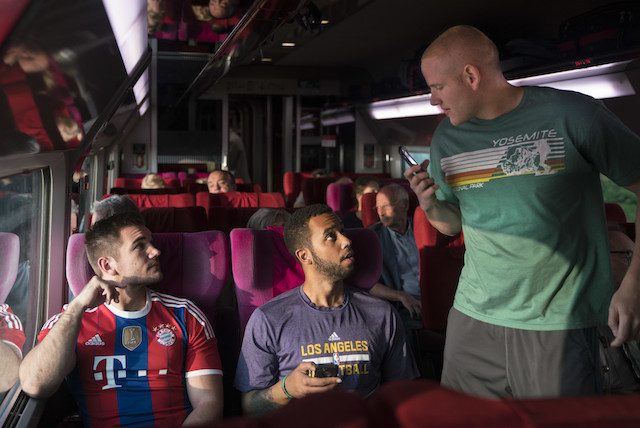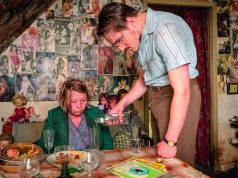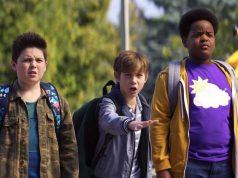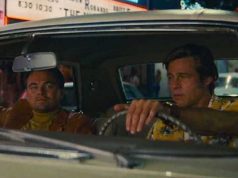
If you have been exposed to more than a second of advertising for “The 15:17 to Paris,” Clint Eastwood’s dramatization of the 2015 terrorist attack thwarted by three Americans, you are aware that the heroes are played by themselves. This is supposed to give the film “authenticity,” though that only works if you know the people onscreen are the real guys, which I guess is why the marketing department made sure everyone knew that.
Fortunately, and probably coincidentally (I doubt Eastwood tested their dramatic range before casting them), Spencer Stone, Alek Skarlatos, and Anthony Sadler have enough natural charisma to be passable as movie stars. While it’s unlikely their performances will be mistaken for the work of professionals, they’re polished enough not to be awkward. (I wonder if it’s a coincidence that the one who seems least at ease on camera is the one with the least screen time.)
The problem is the screenplay, written by first-timer Dorothy Blyskal, who can’t overcome the daunting hurdle that would face anyone trying to adapt this incident into a film: there’s no story to tell until the thing happens, and once it happens, it’s over in a few minutes. It’s not a movie, it’s an anecdote. A really exciting and inspiring anecdote, for sure! But still.
It’s sloppy from the get-go. There’s a narrator, but only to deliver a couple of lines at the very beginning, and it’s Anthony Sadler, introducing what is mostly Spencer Stone’s story. We meet them in Christian middle school in Sacramento. Spencer (played as a kid by William Jennings) and Alek (Bryce Gheisar) are lifelong friends and mild troublemakers who meet Anthony (Paul-Mikel Williams) in the principal’s office and become a trio. Anthony’s parents aren’t shown until the last scene of the movie (with no lines), but Spencer’s mother (Judy Greer) and Alek’s (Jenna Fischer) join forces to stand against the principal and teachers, who mindlessly enforce strict rules without consideration for context. (Man, these kids are going to love the military!)
Several years later, Alek has moved to Oregon and joined the National Guard while Spencer remains in Sacramento, gets in shape, and joins the Air Force. Anthony visits Spencer in Europe, where Spencer says he feels like life is “catapulting” him toward something bigger. That’s in the same category as what Alek’s mom tells him when he leaves for Afghanistan: that God spoke to her and said something “exciting” would happen to Alek, and she can’t wait to see what it is. Moments like that are the film’s half-hearted attempt to expand the anecdote into a full story by implying the men’s lives were leading up to that day on the train. But you can tell the movie doesn’t really believe that, and Jenna Fischer’s God talk is unconvincing.
The three guys are sightseeing together when, 68 minutes into the film, they board the titular train in Amsterdam. Mark Moogalian, the passenger who was actually shot by the terrorist, plays himself, joined by his wife. Chris Norman, the British businessman who helped the three Americans subdue the attacker, is also here as himself, though he’s never named and doesn’t have any dialogue. The sequence is suitably tense and chaotic, and it’s surreal to watch people re-enact their own trauma, but that’s really all there is to it. The movie is mostly a travelogue, a colorless recitation of events with no personality. Apart from Clint Eastwood’s pathological need to make a quick, easy movie every couple of years, I don’t know why it exists.
C (1 hr., 34 min.; )





